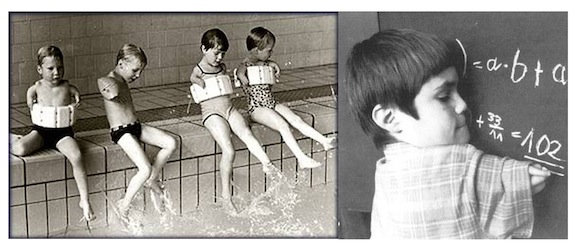Thalidomide Manufacturer Finally Apologizes for Birth Defects, Survivors Say It’s Not Enough
The German drug company Grunenthal broke its fifty year silence about thalidomide recently, but survivors aren’t satisfied

Children affected by thalidomide. Images: Luciana Christiante
In the 1950′s and early 1960′s, mothers who had been taking the drug thalidomide for morning sickness began delivering babies with malformed limbs or missing arms and legs. The drug was proven to cause these defects and pulled in 1961.
Since then, the company who manufactured thalidomide has been silent. It wasn’t until last week, 50 years after the drug’s effects were understood, that the company’s chief executive issued a statement of apology, offering “our sincere regrets about the consequences of Thalidomide and our deep sympathy for all those affected.”
But there’s a trend in the headlines about Grünenthal’s apology. In nearly every country, they run the same way. “Irish survivors reject apology from German manufacturer of devastating Thalidomide drug.” “Thalidomide victims reject ‘insulting’ apology.” “Survivor: German firm’s apology for birth defects drug ‘not enough.’” You get the idea.
For survivors, the company’s statement was insufficient. “We feel that a sincere and genuine apology is one which actually admits wrongdoing. The company has not done that and has really insulted the Thalidomiders,” British victim Nick Dobrik told BBC radio.
“If they are serious about admitting they are at fault and regret what happened they need to start helping those of us who were affected financially,” Freddie Astbury told COSMOS.
The law firm Slater & Gordon, who represents survivors, issued a statement saying.
It is too little, too late and riddled with further deceit.
To suggest that its long silence before today ought to be put down to ‘silent shock’ on its part is insulting nonsense. For 50 years Grunenthal has been engaged in a calculated corporate strategy to avoid the moral, legal and financial consequences of its reckless and negligent actions of the 1950s and 1960s.
Many victims say that they won’t take Grünenthal seriously until they start discussing payment. “This is an important first step. The next is to compensate everyone damaged by their so-called ‘totally harmless’ drug,” Adams-Spink, head of the European Dysmelia Reference Information Center, told Reuters.
Grünenthal says it has paid around 500 million euros to victims. At the apology ceremony, it unveiled a statue of a child with shortened arms. But many saw that statue as a gimmick. An association representing thalidomide victims told Reuters that “The fact that Gruenenthal, a billion-euro company, is paying 5,000 euros (for the statue) is a slap in the face of every victim.”
More from Smithsonian.com:
The Gestational Diabetes Diet: Taking Carbs from a Pregnant Lady
Zicam Reveals Holes in Drug Regulation
/https://tf-cmsv2-smithsonianmag-media.s3.amazonaws.com/accounts/headshot/Rose-Eveleth-240.jpg)
/https://tf-cmsv2-smithsonianmag-media.s3.amazonaws.com/accounts/headshot/Rose-Eveleth-240.jpg)